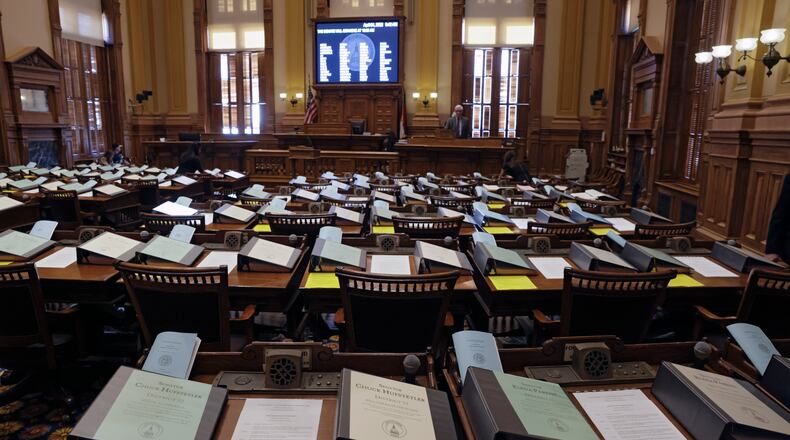Schools are bracing this week for the return of students punchy from too little sleep and too much Fortnite. Next week , schools confront the arrival of state lawmakers who last session politicized the classroom with a series of culture war bills that provided nothing but sound bites.
For the benefit of news cameras and campaign mailers, the General Assembly staged an elaborate charade that white students were being cast as oppressors in history class and school libraries stocked with obscene materials. They pushed bills to pillory teachers in the public square if they upset parents with any suggestion that the legacy of slavery marred modern-day America.
If lawmakers assembling under the Gold Dome for the 2023 session again put a bullseye on public education for political sport, there may be hardly anyone left to teach in the schools or lead them.
A new Economic Policy Institute report reaffirms that the post-pandemic teacher shortage is both widespread and severe in schools serving students of color or from low-income families. The report warns: “The shortage is not a function of an inadequate number of qualified teachers in the U.S. economy. Simply, there are too few qualified teachers willing to work at current compensation levels given the increasingly stressful environment facing teachers.”
As one metro Atlanta principal told me: “Every day we are short bus drivers and food service workers. We can’t find people to take paraprofessional jobs because the pay is so low. This means students with special needs often do not receive all the assistance they need as the teachers are spread too thin. Special ed teachers get burned out quickly because of the stress and demands — trying to meet the needs of the students plus all of the mandates with paperwork.”
What the principal wishes lawmakers would acknowledge: “Public school employees from the custodians to the principal take care of our children 7.5 hours per day. They all deserve increased pay for the tasks they perform very single day.”
Nationwide, rising teacher shortages have been met with larger class sizes, cancellations of courses, online instruction, four-day school weeks and lowering of qualifications for teachers. Florida now permits military veterans to teach even without a college degree. Per Senate Bill 896 effective last July, veterans in Florida must have at least 60 college credits with a 2.5 point grade average. A bachelor’s degree typically requires 120 credits or more.
In their forays into legislating education, Georgia lawmakers often ignore the details and the costs of their policy shifts. For example, lawmakers have been pushing for more career training in high schools — especially healthcare pathways — without any acknowledgement that schools can’t find enough instructors whose industry expertise earns them more in the private sector.
The Atlanta Journal-Constitution asked local education and child advocates to outline priorities for lawmakers this year. Most involve investing more money in early childhood programs, k-12 schools and higher education.
“Georgia teachers make less than college-educated counterparts in other professions; Georgia remains one of only six states without any funding to support students in poverty; our schools employ only one school counselor for every 422 students; and our school bus funding is woefully inadequate,” said Stephen J. Owens, education director at the nonprofit Georgia Budget and Policy Institute.
Fred A. Jones Jr., the senior director of public policy and advocacy for the Southern Education Foundation, said in a guest column, “Georgia was once a national leader in establishing strong pre-K programs, but only about 61% of the state’s 4-year-olds attend public preschool — a lower rate than in Florida and Oklahoma, for example. Too many children are behind in reading, numeracy, and social skills when they start school.”
Tina Fernandez, the founding executive director of Achieve Atlanta, which works to ensure that more Atlanta students go to college and earn a degree, said lawmakers must finally address need-based aid for college students. “This coming year, I call on the state Legislature to craft legislation and allocate funds to support a broad, need-based scholarship program. While money is not the only component of efforts to see more Georgians earn postsecondary credentials, it is a crucial component.”
Mindy Binderman, executive director of GEEARS: Georgia Early Education Alliance for Ready Students, warned federal COVID-19 relief funds that sustained some early childhood programs are running out. “If the federal funds that are due to evaporate aren’t replaced by state ones, this industry, upon which so many working families depend, could be devastated,” she said.
The politicization of schools last year contributed to rising teacher discontent in Georgia. If this exploitation continues, the issue won’t be what’s taught in Georgia schools or how, but whether anybody’s left to teach.
About the Author
The Latest
Featured



